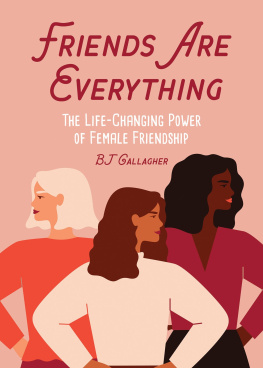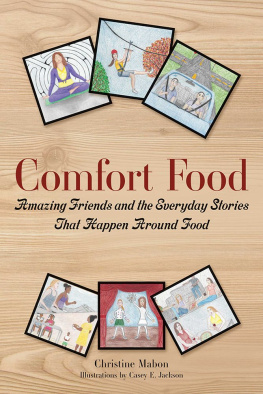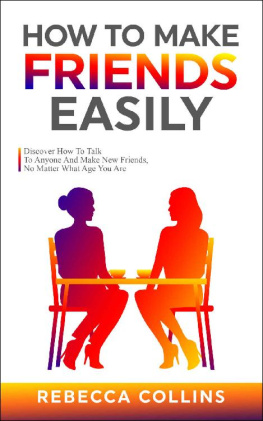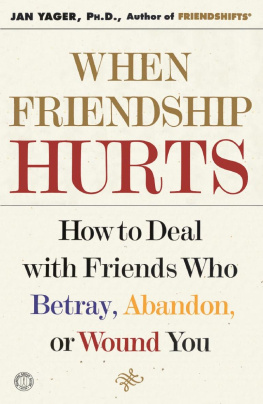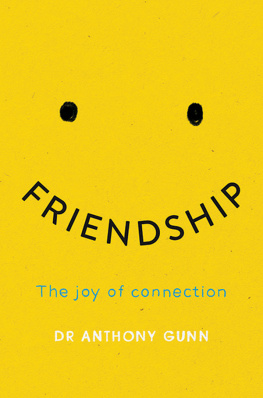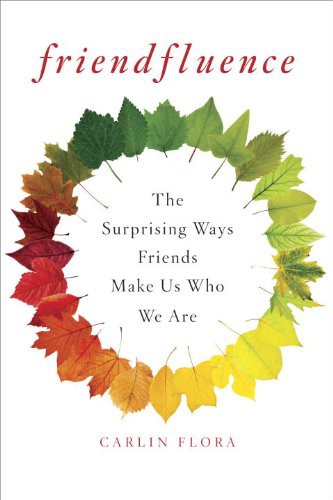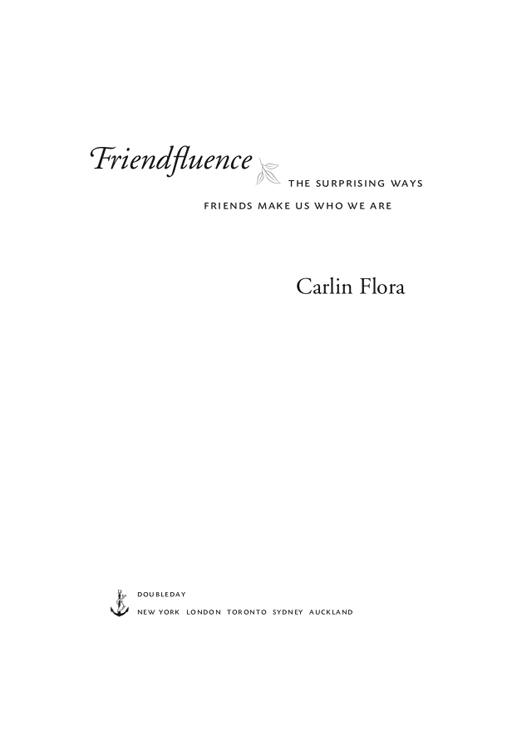Carlin Flora - Friendfluence: The Surprising Ways Friends Make Us Who We Are
Here you can read online Carlin Flora - Friendfluence: The Surprising Ways Friends Make Us Who We Are full text of the book (entire story) in english for free. Download pdf and epub, get meaning, cover and reviews about this ebook. year: 2013, publisher: Doubleday, genre: Home and family. Description of the work, (preface) as well as reviews are available. Best literature library LitArk.com created for fans of good reading and offers a wide selection of genres:
Romance novel
Science fiction
Adventure
Detective
Science
History
Home and family
Prose
Art
Politics
Computer
Non-fiction
Religion
Business
Children
Humor
Choose a favorite category and find really read worthwhile books. Enjoy immersion in the world of imagination, feel the emotions of the characters or learn something new for yourself, make an fascinating discovery.

- Book:Friendfluence: The Surprising Ways Friends Make Us Who We Are
- Author:
- Publisher:Doubleday
- Genre:
- Year:2013
- Rating:3 / 5
- Favourites:Add to favourites
- Your mark:
Friendfluence: The Surprising Ways Friends Make Us Who We Are: summary, description and annotation
We offer to read an annotation, description, summary or preface (depends on what the author of the book "Friendfluence: The Surprising Ways Friends Make Us Who We Are" wrote himself). If you haven't found the necessary information about the book — write in the comments, we will try to find it.
Why is dinner with friends often more laughter filled and less fraught than a meal with family? Although some say its because we choose our friends, its also because we expect less of them than we do of relatives. While were busy scrutinizing our romantic relationships and family dramas, our friends are quietly but strongly influencing everything from the articles we read to our weight fluctuations, from our sex lives to our overall happiness levels.
Evolutionary psychologists have long theorized that friendship has roots in our early dependence on others for survival. These days, we still cherish friends but tend to undervalue their role in our lives. However, the skills one needs to make good friends are among the very skills that lead to success in life, and scientific research has recently exploded with insights about the meaningful and enduring ways friendships influence us. With people marrying laterand often not at alland more families having just one child, these relationships may be gaining in importance. The evidence even suggests that at times friends have a greater hand in our development and well-being than do our romantic partners and relatives.
Friends see each other through the process of growing up, shape each others interests and outlooks, and, painful though it may be, expose each others rough edges. Childhood and adolescence, in particular, are marked by the need to create distance between oneself and ones parents while forging a unique identity within a group of peers, but friends continue to influence us, in ways big and small, straight through old age.
Perpetually busy parents who turn to friendsfor intellectual stimulation, emotional support, and a good dose of merrimentfind a perfect outlet to relieve the pressures of raising children. In the office setting, talking to a friend for just a few minutes can temporarily boost ones memory. While we romanticize the idea of the lone genius, friendship often spurs creativity in the arts and sciences. And in recent studies, having close friends was found to reduce a persons risk of death from breast cancer and coronary disease, while having a spouse was not.
Friendfluence surveys online-only pals, friend breakups, the power of social networks, envy, peer pressure, the dark side of amicable ties, and many other varieties of friendship. Told with warmth, scientific rigor, and a dash of humor, Friendfluence not only illuminates and interprets the science but draws on clinical psychology and philosophy to help readers evaluate and navigate their own important friendships.
Carlin Flora: author's other books
Who wrote Friendfluence: The Surprising Ways Friends Make Us Who We Are? Find out the surname, the name of the author of the book and a list of all author's works by series.



